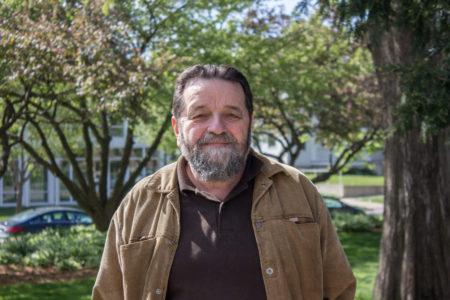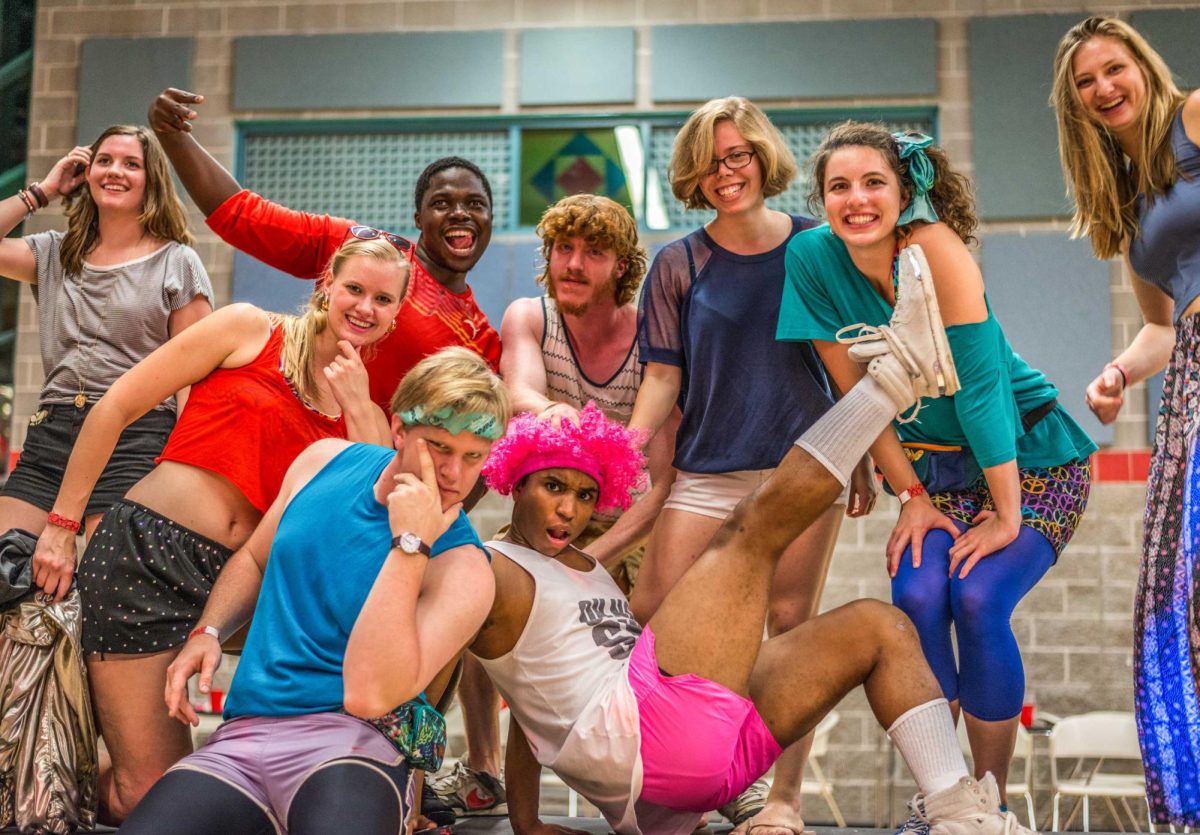
Konstanty Gebert is at Grinnell teaching two short courses this semester.
Konstanty Gebert is a Polish journalist who was a democratic opposition activist in the Solidarity movement, which led to the fall of the totalitarian regime in Poland in 1989. Gebert, who is at Grinnell this semester to teach a couple of short courses, recently sat down with The S&B’s Alice Herman ’18 and Marysia Ciupka ’19 to talk about his thoughts on journalism, political correctness, social movements and Grinnell.
The S&B: So how have you liked teaching at Grinnell?
Konstanty Gebert: I very much enjoy the teaching, mainly because Grinnell students seem to be self-selecting. The level of humanities is high. The kind of people who come here might have wanted to go to Berkeley or to Columbia, and if they chose Grinnell, it probably wasn’t because of the superior urban environment, but rather because my guess is once you’ve come here there isn’t much else to do but study, right?
The one thing that makes me turn completely green with envy still, when I come to the U.S., is the inter-library loan system. Look, the ease with which you can access information — anything — delivered to your doorstep … this just trips me over. The differences are slowly reducing between the former communist world and the West. This ease of information, the open libraries — the first time I went to an open-stack library was at Berkeley, I thought I was having an epiphany [with] all those books calling out “Read me!”
Most American students don’t really know about what happened in Poland that led to the fall of communism. Why would you say it’s important to study the Solidarity movement that you were involved in and social movements in general?
I think studying the history of the Solidarity movement has a particular interest because it’s one of the rare examples of mass non-violent movements that succeeded. I mean you have that, you have Gandhi’s movement in India, you have the civil rights movement in this country — and then the list starts getting really short. Usually non-violent movements either run into violent resistance and stop being non-violent, or run out of steam and this is one of the rare cases in which that didn’t happen. To the contrary, it succeeded beyond our wildest expectations.
When you are doing journalism, does the line for you ever blur with your work as activist?
[As a journalist] you should be a watchdog, but for the public, not necessarily for a cause. So your job is to get the information out, especially if someone is hiding information. And if that someone is your comrade-in-arms, then you better do that job twice as well as if it were somebody else, and if you see yourself as a watchdog for a cause, you’ll end up doing bad journalism, this is inevitable.
There’s an Atlantic article that came out a while ago that said “Our students are coddled because they want safe spaces.” What do you think about the debate around free speech and political correctness?
I actually feel that political correctness is a good thing. That is, in general speech, it is extremely appropriate to avoid using stereotyping expressions because speech does shape both thought and behavior and even if I have to pause for a moment to think of a synonym or refrain from using a cliché, that’s minor suffering compared to the damage that can be done. Bottom line is, even if I don’t think speech is hurtful, it’s not for me to decide, it’s for the person who is being hurt. And I, by and large, very much agree with the idea that we should censor our speech — we individually. … But I would certainly stand up for your right to be obnoxious and I would not give the state or anybody else the right to punish you for that … [but] I draw the line at jokes about genocides and I’m not interested in discussing that.
























































Kaitlyn • May 18, 2017 at 10:25 pm
I had Professor Gebert for a class my senior year. Great professor, really good class discussions. I enjoyed reading this interview!